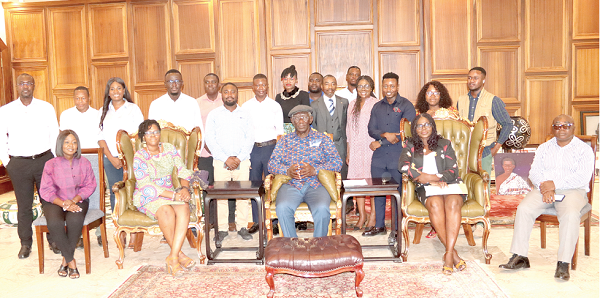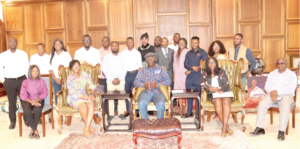Some schoolchildren in the Fanteakwa South District in the Eastern Region have stated that they find it difficult to understand subjects being taught solely in the English Language.
The schoolchildren who are in the kindergarten stage to primary have, therefore, suggested the use of the local language predominant in their area as well to enable them to fully comprehend what they are taught in class.
Two of the children who are from the Osino Presbyterian Basic School, Esther Mensah and Kwame Dankwa, made the suggestion on the sideline of this year’s International Mother Language Day celebration organised in the district by World Vision Ghana, a non-governmental organisation (NGO) at Dwenase last Thursday.
International Mother Language Day, which was instituted by the United Nations Educational Scientific and Cultural Organisation (UNESCO) in 1999, is aimed at projecting local dialects worldwide.
The two children said using the English Language to teach them had been having a negative impact on their studies since they did not understand all expressions in the English Language.
Other schoolchildren who expressed similar sentiments were of the view that the local dialect, Twi, should be used to teach them.
According to him, it was wrong to take away the mother language in the educational curriculum, which was supposed to be used in teaching children from kindergarten level to primary three.
He explained that one of the best things that ever happened to education in Ghana was the introduction of the Standard Base Curriculum (SBC) but that had unfortunately taken away the mother language approach to literacy.
That, Mr Ofosu-Dankyi indicated, made it difficult for children to learn the English Language.
“The only thing that has been turned upside down in education is language and literacy. In education, it is said that we learn from the known to the unknown.
“But when it comes to language and literacy we want our pupils to learn from unknown to known, which is simply not right.
“I urge the government to critically take a second look at the Standard Base Curriculum and review it,” he stressed.
Reading clubs
Mr Ofosu-Dankyi pointed out that World Vision currently had about 320 reading clubs aimed at helping children in communities in the Eastern, Oti and Central regions to improve their reading skills.
He said his outfit had plans to extend the reading clubs to other parts of the country but unfortunately, World Vision had no support in that respect.
He, therefore, called on the corporate world to come on board and support the reading clubs, stressing that reading was now very essential in schools.
The District Chief Executive (DCE) of Fanteakwa South, Ernest Ofosu, stated that it was necessary for children to be taught their mother language at the kindergarten level in schools so that they would build on it with the English Language.
He noted that children were fast in understanding lessons when they were taught in their local dialects and showed interest and confidence in their academic activities and expressions.
Mr Ofosu recalled that last year’s performance at the Basic Education Certificate Examination (BECE) in the district, which was 57 per cent, could have been better if the mother language intervention had been adopted earlier.







